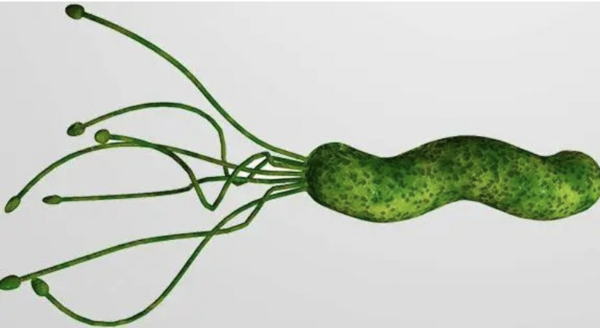User:Newman5
The Cause of Gastric Cancer and Chron's Disease

By Alexis Newman
Helicobacter pylori is a gram-negative, flagella-bearing spiral-shaped proteobacterium1 that can grow in extremely acidic environments, like the stomach2. Its "Helico-" name derives from its helical body and because of its shape, the bacteria can make its way through the viscous lining of the stomach with help from stomach enzymes. However, once H. pylori gets colonized in the stomach, its shape can convert from the rod shape to an inactive coccoid shape3.
Helicobacter pylori is a class 1 carcinogenic bacteria, 1 being named the most carcinogenic a microbe can be and 4 being non-carcinogenic. H. pylori was determined to be a class 1 carcinogen more than 30 years ago from purely epidemiological data. This investigation showed a positive relationship between gastritis cancer and H. pylori. A couple of years after this phenomenon, in 1991, further evidence showed the prevalence of H. pylori antibodies in patients with gastric and bowel cancer 4.
At right is a sample image insertion. It works for any image uploaded anywhere to MicrobeWiki.
The insertion code consists of:
Double brackets: [[
Filename: Paeruginosa.webp
Thumbnail status: |thumb|
Pixel size: |300px|
Placement on page: |right|
Legend/credit: Magnified 20,000X, this colorized scanning electron micrograph (SEM) depicts a grouping of methicillin resistant Staphylococcus aureus (MRSA) bacteria. Photo credit: CDC. Every image requires a link to the source.
Closed double brackets: ]]
Other examples:
Bold
Italic
Subscript: H2O
Superscript: Fe3+
Sample citations: [1]
[2]
A citation code consists of a hyperlinked reference within "ref" begin and end codes.
To repeat the citation for other statements, the reference needs to have a names: "<ref name=aa>"
The repeated citation works like this, with a forward slash.[1]
